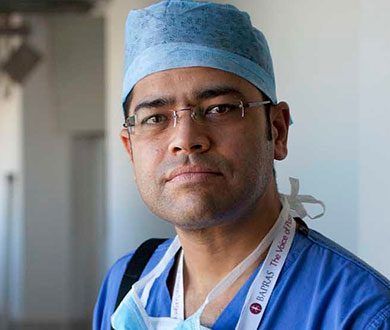A Guide To Finding the Right Plastic Surgeon
If you’re thinking about plastic surgery, choosing the right surgeon is crucial for achieving the results you desire and ensuring your safety throughout the process. Whether you're considering a minor cosmetic enhancement or a major surgical procedure, the following guide will help you make an informed decision.

1. Check Qualifications and Credentials
The very first step in selecting a plastic surgeon is to verify their qualifications. Ensure that the surgeon is listed on the specialist register for plastic surgery on the General Medical Council’s website. Your surgeon should be listed on the plastic surgery specialist register. Being listed on the register means the surgeon has reached consultant level in their field and confirms that the surgeon has undergone rigorous training and meets high standards of practice. It’s also important to check what professional bodies the surgeon is a member of. Look for memberships to BAAPS, BAPRAS and ISAPS.
2. Research Their Experience
Experience matters when it comes to plastic surgery. Look for a surgeon who has extensive experience in the specific procedure you are considering. Ask how many times they have performed the procedure and inquire about their success rates. A seasoned surgeon is likely to have honed their skills and can handle any complications that may arise.
3. Review Before-and-After Photos
Before-and-after photos are a valuable resource for assessing a surgeon’s work. Most reputable surgeons will have a gallery of their previous patients available on their website, social media, or during the consultation. Pay close attention to the results and see if they align with your aesthetic goals. Look for consistency and natural-looking outcomes.
4. Read Patient Reviews and Testimonials
Patient reviews and testimonials offer insights into the surgeon’s reputation and patient satisfaction. Check online review platforms, social media, and the surgeon’s website for feedback from previous patients. Positive reviews and high ratings are a good sign, but also pay attention to any recurring issues or negative comments.
5. Evaluate Communication and Comfort Level
Your comfort and trust in the surgeon are paramount. During the initial consultation, evaluate how well the surgeon listens to your concerns and answers your questions. They should provide clear explanations and set realistic expectations. A good surgeon will make you feel at ease and confident in their abilities.
6. Assess the Facility and Staff
The facility where the surgery will be performed should be accredited and equipped with the latest technology - look for if they are CQC regulated. The staff should be professional, friendly, and supportive. A well-maintained facility and a competent team are indicators of a surgeon’s commitment to patient care and safety.
7. Consider the Cost
While cost should not be the sole deciding factor, it is an important consideration. Be wary of prices that seem too good to be true, as they may indicate subpar quality or hidden fees.
8. Ask About Aftercare and Follow-Up
Post-operative care is critical to a successful recovery. Ask about the aftercare process and follow-up appointments. A reputable surgeon will provide comprehensive aftercare instructions and be available to address any concerns during the recovery period. They should also offer follow-up visits to monitor your progress and ensure optimal results.
9. Trust Your Instincts
Finally, trust your instincts. If something feels off or you have any doubts, it’s perfectly acceptable to seek a second opinion. Your intuition is a valuable tool in making the right choice. Remember, this is a significant decision, and you want to be confident in the surgeon you select.










